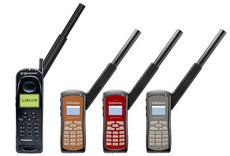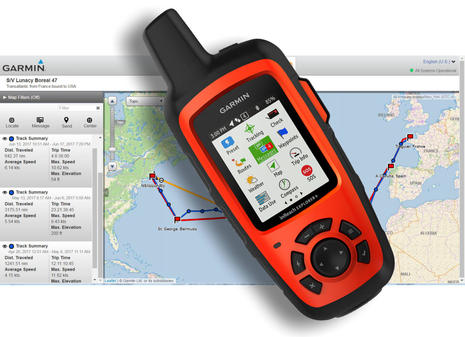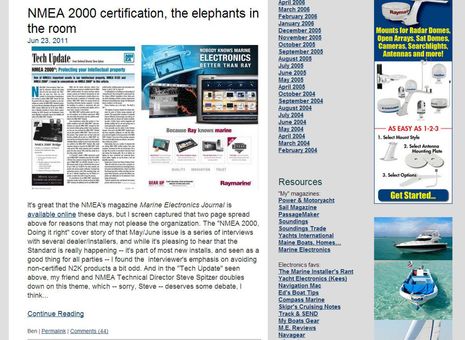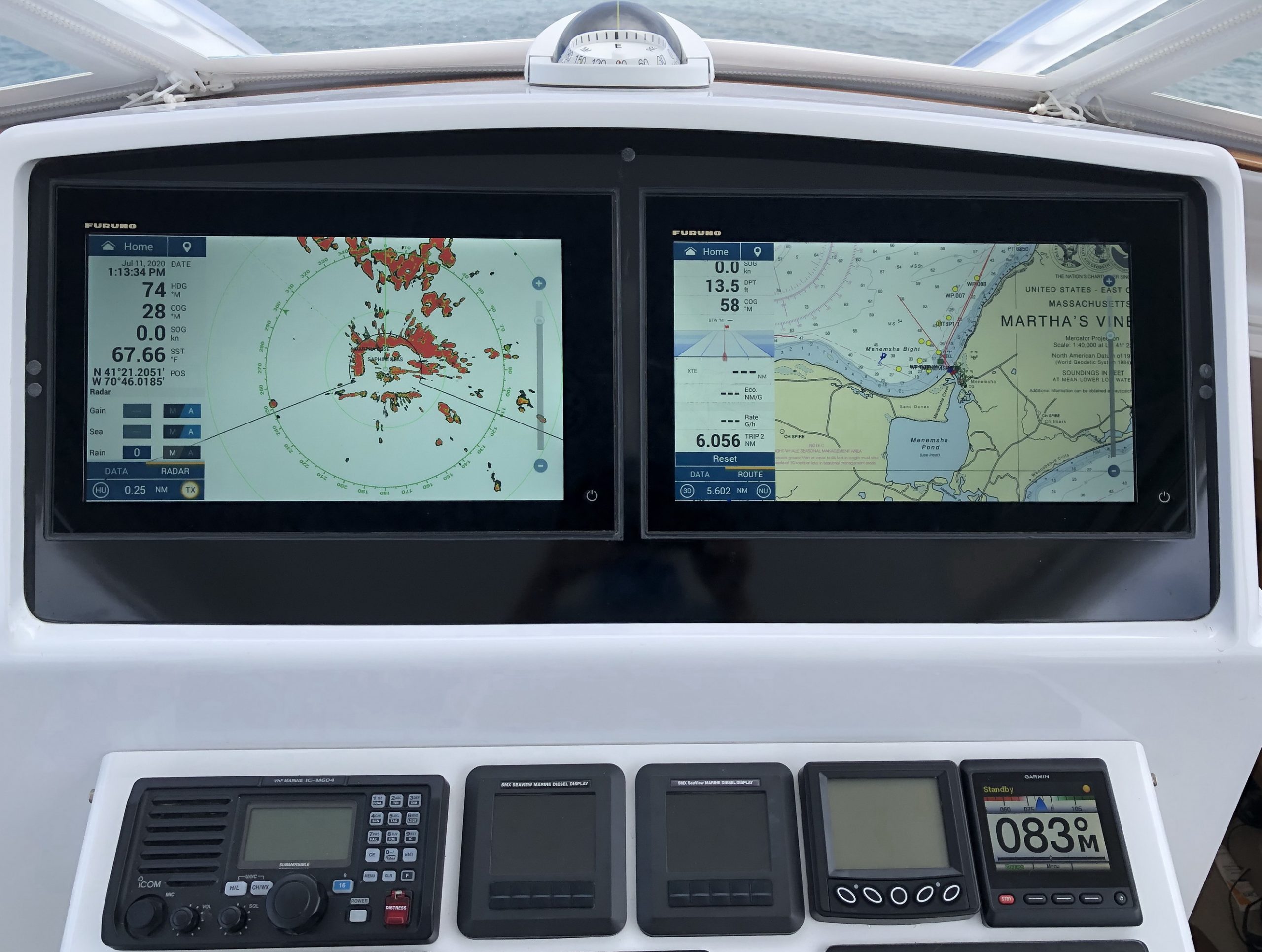Vista revisited, and check the cool Globalstar

Well, it turns out that my verklempt (definition) marine PC buddy didn’t have his facts right. Apparently Microsoft’s fee for driver certification is actually in the 2–3 grand range, and is waived entirely until May! Also, the new Globalstar 1700 satellite phone I mentioned is, or soon will be, Vista certified, and so will the older 1600.
And this new phone looks sweet, with what looks like a number of usability  improvements besides a major size reduction (though that folding antenna is still large enough to impress the swabbies). Globalstar has full coverage here, and OCENS is ready to sell you the phone, accessories, and service plans here. In fact, the phone comes with trial versions of OCENS Mail and WeatherNet, and is supposedly very easy to interface with a PC via USB: “Works with any PPP standard Internet device, including Windows, Mac OS and Linux.” And I notice that OCENS seems to have a promotion running that will get you an annual 1,800 minute voice/data plan for about 30 cents per. I dare say that other marine sat comm specialists like NavCom Digital and Marine Computer Systems will soon follow suit.
improvements besides a major size reduction (though that folding antenna is still large enough to impress the swabbies). Globalstar has full coverage here, and OCENS is ready to sell you the phone, accessories, and service plans here. In fact, the phone comes with trial versions of OCENS Mail and WeatherNet, and is supposedly very easy to interface with a PC via USB: “Works with any PPP standard Internet device, including Windows, Mac OS and Linux.” And I notice that OCENS seems to have a promotion running that will get you an annual 1,800 minute voice/data plan for about 30 cents per. I dare say that other marine sat comm specialists like NavCom Digital and Marine Computer Systems will soon follow suit.














Can we hope Iridium will follow soon?
Don’t know about any new Iridium phones, but have heard tell of some new marine tracking/security/messaging products that make maximum use of Iridium’s solid, global (if narrow) data abilities. Stay tuned!
Only x64 Vista kernel mode drivers need to be signed to install. User mode drivers do not need to be signed (but will pop up the unsigned warning). Devices that use USB or serial communication can easily be written as user mode drivers, and hence I would not expect this to be a major impact to most marine hardware developers.
There appears to be some confusion regarding signing and Windows Logo Certification. Digital signatures are estimated to cost $500 per year and is all that is required to allow kernel mode drivers to install. The Logo Certification is optional and $2-3K is not an unreasonable estimate, but actual costs depend on total test time needed to validate the driver. If Microsoft’s level of testing is good, it could be worth the investment to reduce the chance of users finding problems down the line and driving up support costs or giving the product a bad rap. A good software tester who knows their kernel mode device driver testing is not cheap either. For anyone selling a serious number of units, this cost is peanuts in the overall product development budget.
All the gory details can be found here:
http://www.microsoft.com/whdc/system/platform/64bit/kmsigning.mspx
Good to see you’re up and running again!
I looked at Globalstar coverage and it looks very limited for marine use.
Iridium seems to be worldwide except for a few countries with regulatory issues.
Am I missing something here? It’s nice to have pretty hardware but I’d rather have it work mid-ocean.
http://blogs.barrons.com/techtraderdaily/2007/02/06/globalstar-satellite-troubles-could-cause-service-shutdown/
GlobalStar: Satellite Troubles Could Cause Service Shutdown
Posted by Eric Savitz
One thing you really want to have as a satellite communications company is a nice collection of well-functioning satellites. Without them, to state the incredibly obvious, you own a nice collection of space junk.
And that is the problem that now faces GlobalStar (GSAT), the satellite communications provider.
Last night, the company filed an incredible 8-K document with the SEC. In a section labeled �Satellite Constellation Operations,� the company made some disturbing disclosures. Globalstar has previously said that a number of its satellite have suffered from degradation of performance of power amplifiers to the S-band antenna which provides the downlink to subscriber phones or data terminals. The result can be reduced quality and call duration. If the S-band antenna stops working, then you can�t have a two-way conversation using the specific satellite. GlobalStar conjectures that the amplifier problem might relate to irradiation in orbit, but it isn�t entirely sure.
The company says it has managed the issue in various ways, including placing spare satellite already in orbit into service and moving its satellites to different orbits. Previously, the company has said that with the addition of eight spare satellites planned for launch in 2007, two-say service would be viable until a set of next-generation satellites were placed into service in 2009.
Engadget has a thorough review of the ‘new’ Spot Global Phone but they seemed to have missed the fact that it’s the same hardware Globalstar introduced in 2007, just before their phone service developed major problems:
http://www.engadget.com/2013/06/16/spot-global-phone-review/
However, it’s still pretty small and cell-like for a sat phone. And maybe more important it seems to have worked pretty well for the reviewer.
http://www.findmespot.com/en/index.php?cid=122